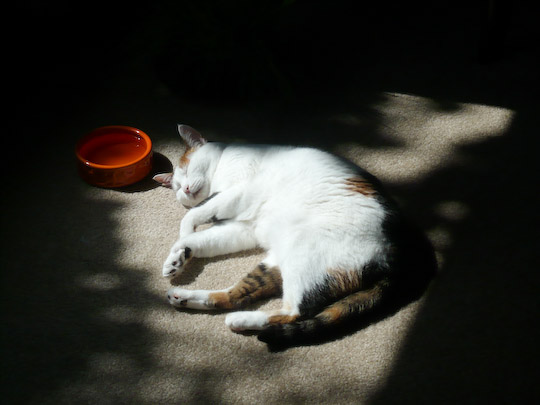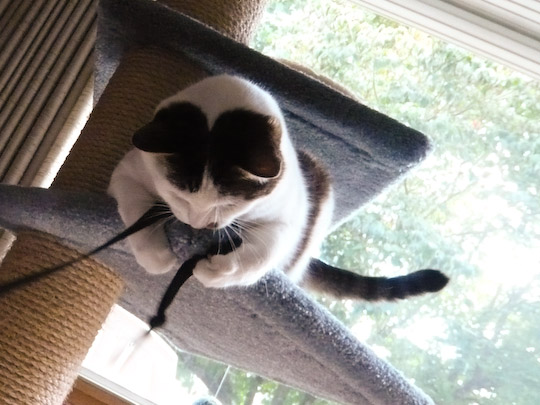 Let’s get this out of the way. The book is written in the second person. Yes, the book is all about you. (The second paragraph starts “You’re pedaling home.” Yes, like that). Some people object to this. It didn’t really bother me.
Let’s get this out of the way. The book is written in the second person. Yes, the book is all about you. (The second paragraph starts “You’re pedaling home.” Yes, like that). Some people object to this. It didn’t really bother me.
The book is nominally a sequel to his novel Dogland. I say “nominally” because while the fantasy in that book is so subtle you could easily miss it, this book takes a left turn into deep fantasy territory pretty early on. I think it’s better to think of them as completely separate books. I’m a little worried about rereading Dogland after reading Gospel. It’s definitely going to color it a little (pun totally not intended).
But let’s talk about this book. Christopher Nix is a rebellious teenager in 1969. He’s a hippie wannabe. He has run-ins with rednecks. He meets a girl. He has a strangely distant relationship with his family. One day he finds out that a benefactor will pay for him to go to an exclusive prep school and he decides to go. That decision makes a mind-boggling change in Chris’s life and turns the book into something completely different. Later on some other weird stuff happens that leads to a story within the story and it is this section that gives the book its title.
All very vague, but enough that I can talk about the book without spoiling it too much, I think. The book is about class. As in “class struggle” or “class war”. This subject matter will come as no shock to anyone familiar with Shetterly’s non-fiction writing. Shetterly thinks it’s an important subject and should be talked about more. I don’t disagree, but that motivation is too visible in this book. It feels preachy. No surprise for a book with “Gospel” in the title, I suppose. That gospel section of the book is a fictional lost gospel story with another take on the whole New Testament story. Preachy.
I can almost forgive the preachiness since he’s attempting some interesting narrative tricks to get his message across (beyond just the second person thing). The book is repeatedly surprising in the way that it steers away from cliched solutions to problems (never mind that it has to get into cliched situations to be able to get out of them in novel ways). I wish I could read the book with a younger mind. I think I would have liked it better if I’d read it when I was less of a curmudgeon.
Note that if you decide to read it you might want to know that Shetterly has already revised it, adding a new last line.
 I was a little skeptical when I heard that Emma Bull’s new book was a western. Not only a western, but a historical western set in Tombstone, Arizona at the time of the gunfight at the O.K. Corral. But while skeptical, I couldn’t really help assuming that she would win me over, and in that I was right.
I was a little skeptical when I heard that Emma Bull’s new book was a western. Not only a western, but a historical western set in Tombstone, Arizona at the time of the gunfight at the O.K. Corral. But while skeptical, I couldn’t really help assuming that she would win me over, and in that I was right. I don’t really have much to say about this book. I didn’t envy Rowling trying to bring this series to a conclusion that would be satisfying to her legions of fans. I think she did a remarkably good job. Now I don’t envy the filmmakers who will have to turn this book into a satisfying movie. A pretty large portion of the book consists of Harry and various supporters setting up and breaking down camp in various unpleasant corners of England. Not exactly dramatic gold, but I’m sure they’ll manage.
I don’t really have much to say about this book. I didn’t envy Rowling trying to bring this series to a conclusion that would be satisfying to her legions of fans. I think she did a remarkably good job. Now I don’t envy the filmmakers who will have to turn this book into a satisfying movie. A pretty large portion of the book consists of Harry and various supporters setting up and breaking down camp in various unpleasant corners of England. Not exactly dramatic gold, but I’m sure they’ll manage. I got this from the library because I read the Livejournal of one of the authors (Ryk E. Spoor, otherwise known as “seawasp”). I read his journal because I used to enjoy his posts on rec.arts.sf.written back before Usenet became more noise than signal. I’d never read any of his fiction and one day decided that was dumb and put a hold on this, the only book of his in my library. I would never have picked the book up based on the cover. I don’t know if you can tell from that little thumbnail, but it depicts a pack of dinosaurs tearing into a crashed spaceship. Dinosaurs and spaceships together don’t really push my buttons. Plus I’d never read Eric Flint and had some vague association that he wrote military SF, another sub-genre that doesn’t turn my crank.
I got this from the library because I read the Livejournal of one of the authors (Ryk E. Spoor, otherwise known as “seawasp”). I read his journal because I used to enjoy his posts on rec.arts.sf.written back before Usenet became more noise than signal. I’d never read any of his fiction and one day decided that was dumb and put a hold on this, the only book of his in my library. I would never have picked the book up based on the cover. I don’t know if you can tell from that little thumbnail, but it depicts a pack of dinosaurs tearing into a crashed spaceship. Dinosaurs and spaceships together don’t really push my buttons. Plus I’d never read Eric Flint and had some vague association that he wrote military SF, another sub-genre that doesn’t turn my crank. First of Evanovich’s books about the unlikely bounty hunter Stephanie Plum. Becky had been talking these up for a while and a friend from work with very different tastes from Becky also liked them. Even my mom read a few. So I tossed this in my bag when I had a long bus ride one day. I was able to read over half of the book on my way to lunch and back (which says more about how hard it was to get to lunch on Metro than it does about the book, I know).
First of Evanovich’s books about the unlikely bounty hunter Stephanie Plum. Becky had been talking these up for a while and a friend from work with very different tastes from Becky also liked them. Even my mom read a few. So I tossed this in my bag when I had a long bus ride one day. I was able to read over half of the book on my way to lunch and back (which says more about how hard it was to get to lunch on Metro than it does about the book, I know).
